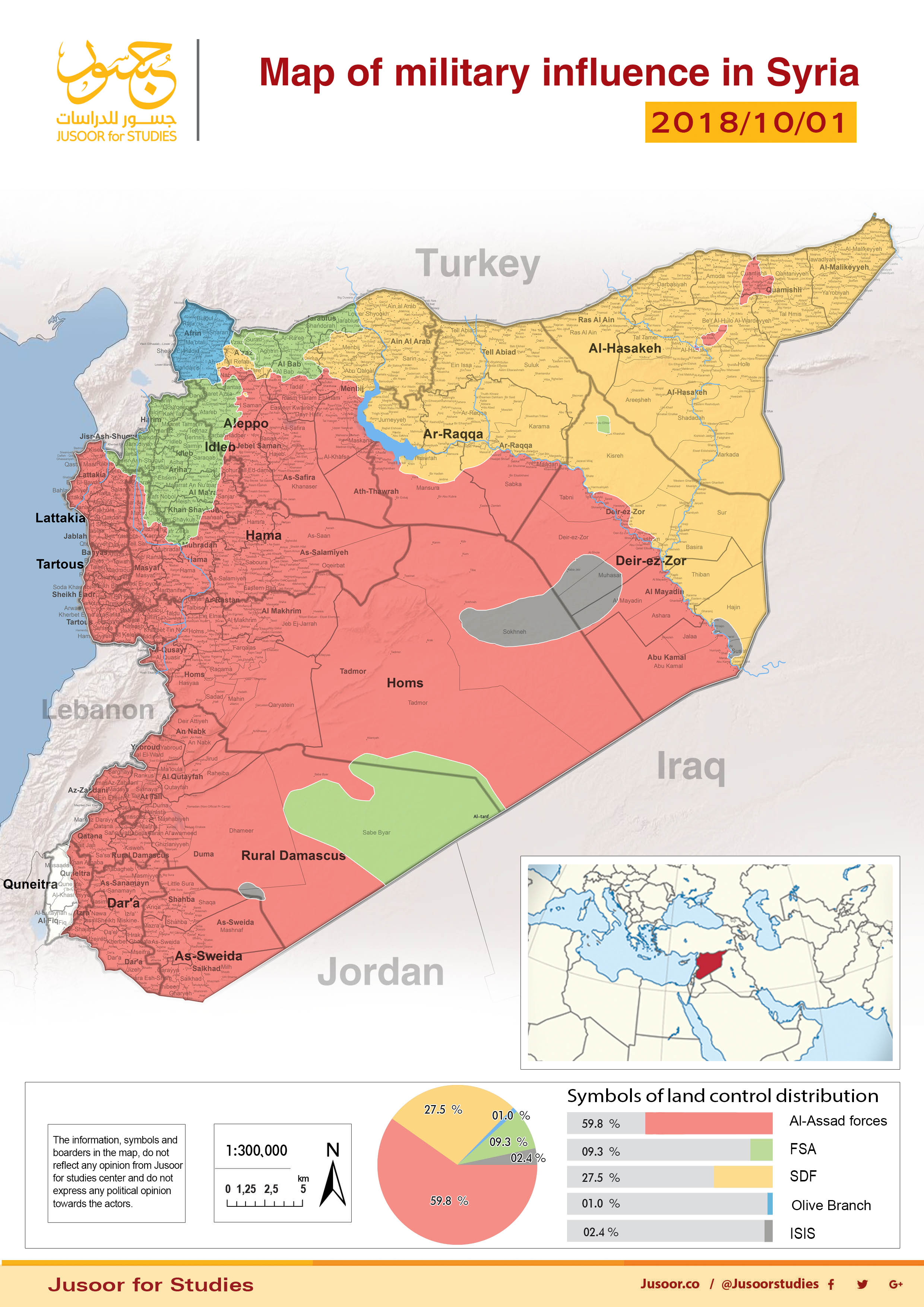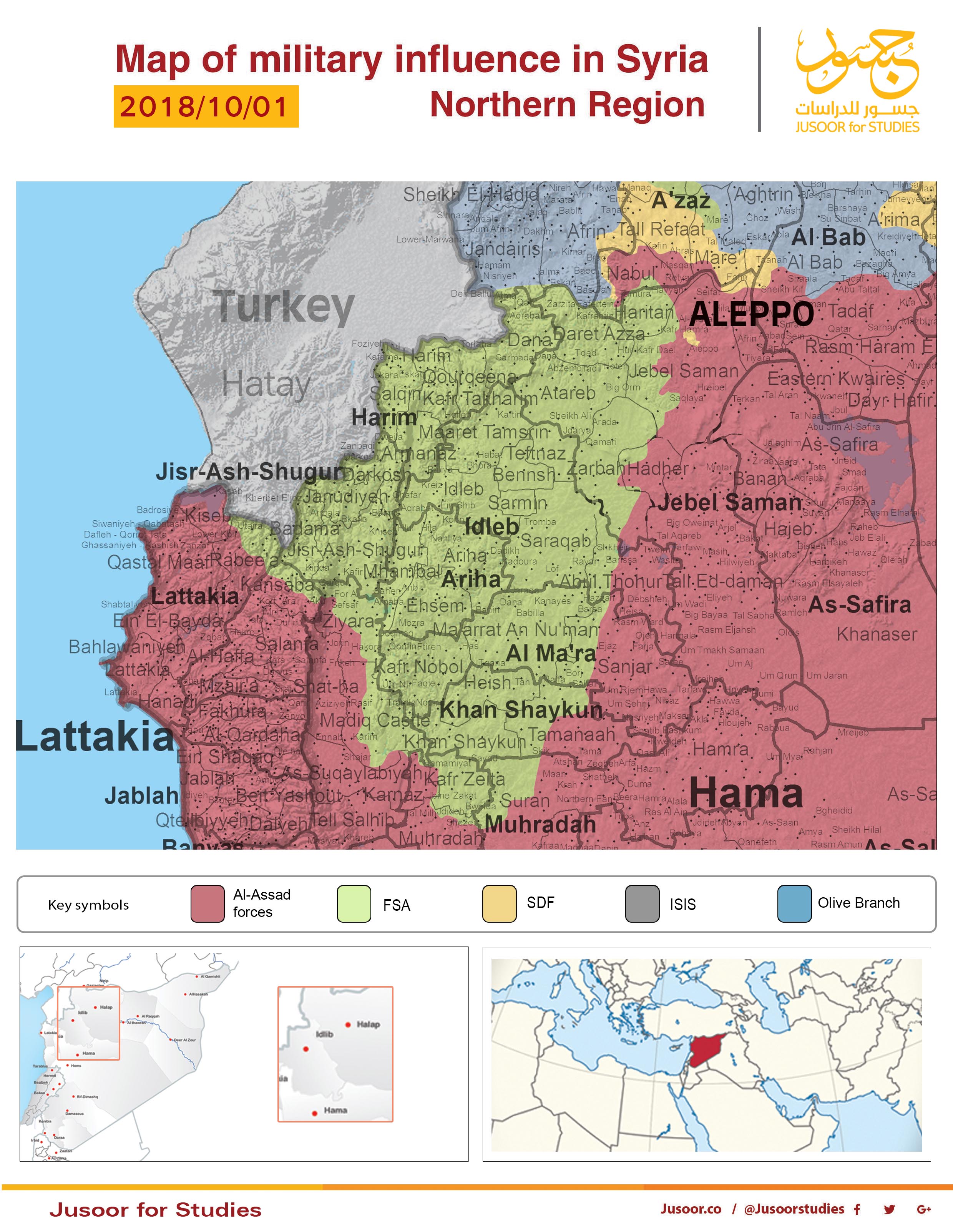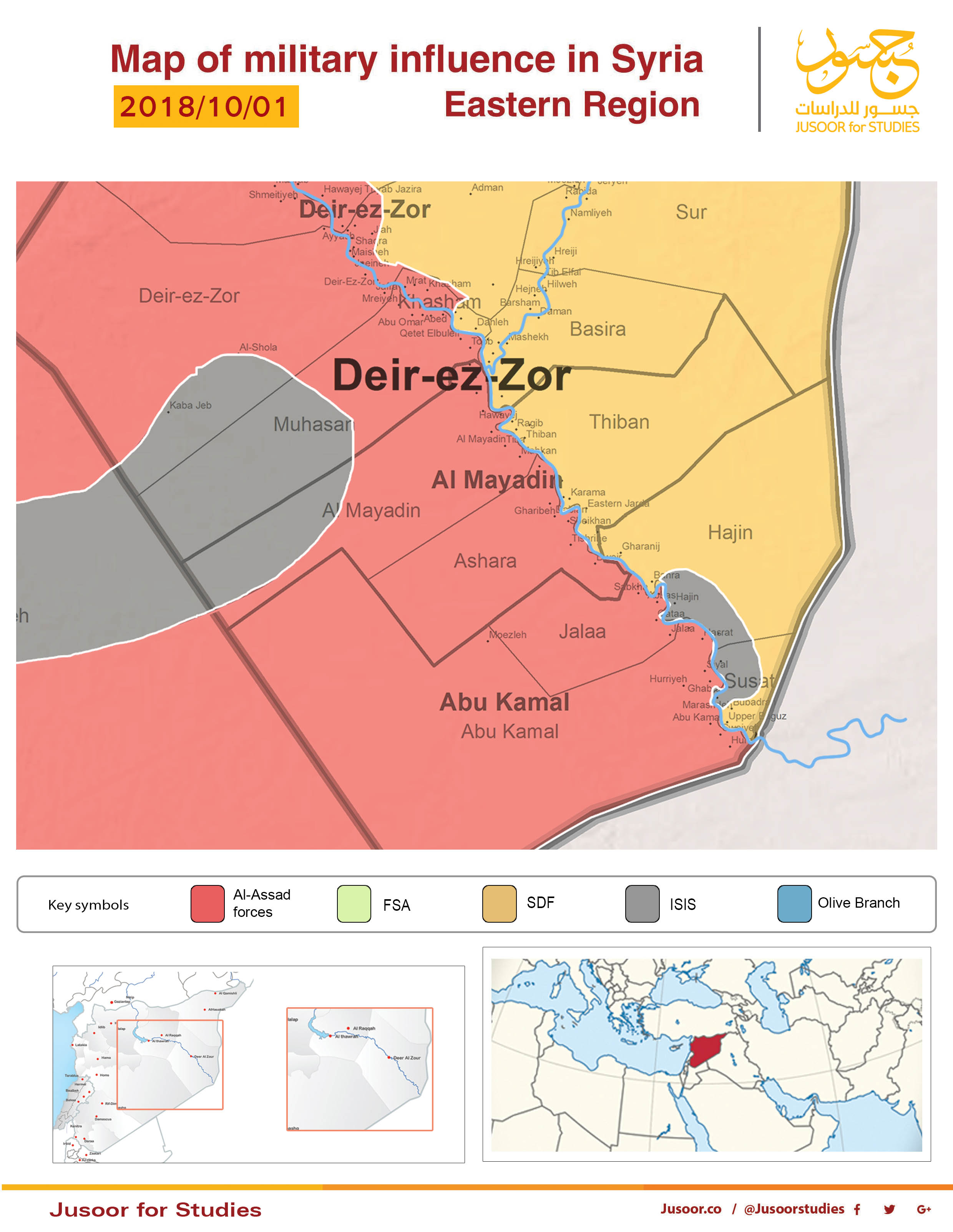Map of military influence in Syria 01-10-2018
The map of military influence in Syria for September 2018 showed stability in the total ratios of control among most of the forces. Areas and fronts did not witness significant military movements with the exception of battles between ISIS and SDF and between ISIS and the Syrian regime in eastern Syria. The relative stability of the ratios of control has been reinforced by the agreement reached by Turkish President Recep Tayyip Erdoğan and Russian President Vladimir Putin after the Sochi Summit on September 17 as the agreement suspended an anticipated military operation in northern Syria.
According to the map issued by the Jusoor Center for Studies, the Syrian regime control ratio remained at its July record of 59.8%. The ratio is the highest ratio of control recorded since 2012. ISIS maintained its areas of influence despite the battles that took place on the fronts in the eastern region whereby ISIS’s ration of control in September is 2.4%.
The armed opposition factions maintained the ratio of control 9.3% recorded in the previous month. Similarly, SDF maintained its ratio of control at 27.5%.
The Syrian East
The SDF completed their military operations within the third phase of al-Jazeer Storm battle launched in May 2018 to gain control of the last ISIS controlled pockets in the besieged al-Hajin-al-Baghouz area. This month witnessed noticeable events that include the participation of the Iraqi forces in the battles against ISIS with French and American artillery providing artillery support. The SDF was able to take control of the town of al-Baghouz al-Foukani and the forces advanced in the village of Buzan, but ISIS regained control of the village.
On the other hand, ISIS intensified its attacks against the Syrian regime forces and allied militias in the al-Boukamal Valley, al-Mayadin, and Palmyra in September 2018.
The Syrian North
The Syrian north anticipates the implementation of the Sochi Agreement reached by Ankara and Moscow on September 17, 2018. The two sides are supposed to complete the demarcation of the buffer zone by mid-October and the exact area size and distribution of this area is still unknown.
In the event that the terms of the agreement are implemented, the fourth de-escalation zone will be transformed into a temporary zone of stability and later into a comprehensive cease-fire zone. This implementation will lead to the establishment of mechanisms to activate the international road between Aleppo and Damascus (M-5) and the international road between Aleppo and Latakia (M-4).
Turkey will also strengthen its observation points and conduct joint patrols with Russia in the buffer zone.











